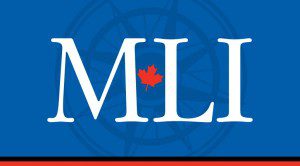 We ought to be debating how to make our societies more mobile, write Sean Speer and Daniel Mahoney, not get caught up on ideas of income redistribution.
We ought to be debating how to make our societies more mobile, write Sean Speer and Daniel Mahoney, not get caught up on ideas of income redistribution.
By Sean Speer and Daniel Mahoney, June 15, 2017
One of the similarities between the UK election last week and Canada’s federal election in 2015 is that both involved major political parties that were committed to raising taxes on high-income earners in the name of equity and fairness.
This committment contributed to the British Labour Party gaining 34 parliamentary seats in the UK elections, and allowed Canada’s Liberal Party to increase its seat total by 148 and to form the government. Indeed, this clamour for “fairness” seems to be growing in resonance across industrialised countries, including Canada, the United States, and the United Kingdom.
Why this idea has come to loom so large in our politics is difficult to discern. It may be a misunderstanding about the share of taxes already paid by high-income earners. It may be a perception that the wealthy have an unfair advantage. It may be a case of collectivised envy.
Another explanation is that the public assumes our societies are, in effect, caste systems. High-income earners are seen as part of some closed hereditary elite that it’s impossible to join or leave. An imagine is conjured of the quintessential public school-boy – or girl – who has been marked for a life of comfort irrespective of his or her choices or accomplishments. Higher taxes on the wealthy are therefore deemed justified because they mitigate stratification and correct for unequal opportunity.
The evidence, however, paints a different picture. Study the characteristics of high-income earners and it is striking how fluid the group is. It’s not a static, unchanging caste, but rather a dynamic population that people join and leave regularly. This social dynamism, or churn, looks like it has been holding steady – if not increasing – over the past 20 years. It is surely something worth celebrating.
Comparative data from different jurisdictions on the level of churn among high-income earners can sometimes be hard to come by. Some use different population subsets or timelines. Others show different sources of income or wealth. But notwithstanding these limitations, the general trends certainly seem the same. High-income earners in the United Kingdom and Canada are subject to considerable and steady churn.
The United Kingdom
The evidence from the UK shows that churn among the top 20 per cent of income earners has increased over the past two decades. Approximately one in five of those in the top quintile changed year-over-year between 1992-93 and 1993-94. This amount has jumped to nearly one third of high-income earners experiencing year-over-year churn between 2013-14 and 2014-15, according to the Department for Work and Pensions.
This also applies to movement from the fourth quintile into the top one. Only 9 per cent of those in the fourth quintile moved into the top one between 1992-93 and 1993-94. This has increased to nearly 20 per cent between 2013-14 and 2014-15.
Which isn’t to say there isn’t room for improvement. The UK still performs relatively poorly on the Great Gatsby Curve, whereby high levels of income inequality can come to erode social mobility. It ought to be a priority for the newly-elected government to continue to make progress in enabling greater opportunity and mobility.
But it’s also worth noting that, as this degree of churn has increased among the top quintile of earners, the Office of National Statistics has also observed a gradual decline in income inequality over the past 10 years to levels not seen since the mid-to late 1980s.
Canada
A comparable dynamism can be found in Canada. A recent paper published by the Macdonald-Laurier Institute, a Canadian-based think-tank, showed that nearly a quarter of the top 1 per cent of earners changes each year – with just under half changing every five years. These percentages have been generally constant for the past two decades.
Similar trends are in place for the top 5 per cent and 10 per cent of Canadian earners. More than one in five of those in the top 5 per cent changed year-over-year in 2014 – not dissimilar to the 22.5 percent in 1993. Forty per cent had changed over a five-year period in 2014 which was less than the 46.2 per cent in 1993. As for the top 10 per cent, the year-over-year churn was 17.7 percent in 2014 and 18.6 percent in 1993. The share of churn over a five-year period was 35.6 per cent in 2014 and 41.3 per cent in 1993.
As with the United Kingdom, there is still plenty of work to be done to realise the goal of greater social mobility and opportunity in Canada. The year-over-year churn among the bottom 50 per cent is still only 10 per cent, and 17.2 per cent over a five-year period. Raising these figures ought to be a key goal for Canadian governments.
But the upshot is that neither the United Kingdom nor Canada are caste systems. In fact, new research shows that age is a greater determinant of wealth inequality and membership among high-income groups, than other more commonly assumed factors. Yet no politicians are out stumping for higher taxes on seniors.
But the point is we shouldn’t be wasting time arguing about the perceived unfairness of the tax system, we ought to be debating how to make our societies more mobile and dynamic. Imposing higher and higher taxes on high-income earners won’t get us there. Creating the conditions for more churn will.
Sean Speer is a Munk Senior Fellow at the Macdonald-Laurier Institute and Daniel Mahoney is Deputy Director and Head of Economic Research at the Centre for Policy Studies




